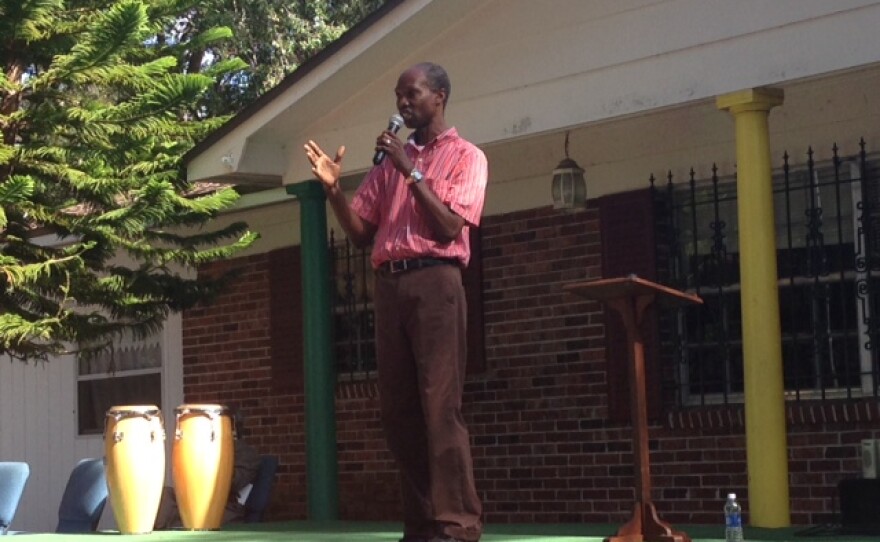Food is more than just a way to nourish ourselves. For some, food can mean a career or an integral part of culture.
For others, like the Burmese refugees in Tampa, food means community and possibly a way of life. The Tampa Bay Gardens off Causeway Boulevard is an opportunity for them to recreate their culture and learn agricultural business.
Last weekend was Open House Saturday in the community gardens tucked behind St. Mary's Ethiopian Orthodox Church. The sun was shining brightly through the clouds while children chased each other around the yard.
Student performers from the University of South Florida played African music and danced while another set of student volunteers provided healthy eating tips to guests. They were all coming together in celebration for the Tampa Bay Gardens. It's an agricultural project for refugees.

A majority of those refugees come from Burma, also known as Myanmar. Because of the long standing military rule taking hold of the country, many Burmese have fled. Some of the Burmese were forced to live in other countries, like Thailand, in refugee camps, and many have trickled into Tampa Bay.
Taddese Fessehaye is community liaison manager with the state's refugee services department. He said some Burmese were born in those camps and have limited job skills.
“Jobs are not really there for all the refugees we have in the Tampa area because they don’t bring job skills from there," Fessehaye said. "They spend most of their time in refugee camps so they are more familiar with the farming.”
And that's the idea behind the Tampa Bay Gardens.
“We decided to give them an opportunity to farm so that they could supplement their food and at the same time if things go well, they can supplement their income also,” Fessehaye said.
The idea of a garden started three years ago from two church pastors. Joseph Germain is pastor of Global Refuge Community in Temple Terrace, where Burmese refugees take English classes. He says the pastor of St. Mary's Ethiopian Orthodox Church offered some of the land behind the church to start growing crops from papayas to cabbage.
Germain said it was more than a one-man effort.
“What you see today is a demonstration of what can happen when people look out and see the need and they’re willing to put aside their differences and work toward a common goal," Germain said.
This project is the first of its kind in Florida. Fessehaye says he hopes to replicate the project elsewhere in Jacksonville and Orlando where more refugees live.
Recently, the project caught the attention of the Office of Refugee Resettlement, a part of the Federal Department of Health and Human Services. It awarded the Tampa Bay Gardens a grant of $85,000 a year for three years, last October.
The goal of the project is to eventually create micro-enterprises for refugees who want to start their own business in agriculture. Caretaker Lah Ku lives on the property and takes care of the garden full time.
Ku says the garden provides food of his culture.
“This garden has been a benefit for all the Burmese family and it will be a benefit in the future because for example they eat a lot of chili," Ku said, "and they cannot get from other outside, is very spicy, so they plant here, they harvest [it] themselves and they eat it, which is very very good and they are so happy with that.”
He also says he's glad to tend to the garden.
“I feel very good because I can plant what we used to eat in Burma, and then all the plants that we are doing are organic, so it’s delicious to eat ,so me and my family are happy to be a part of this project.”
Saturday's presentation ended with Lah Ku and a group of others singing in Karen. The song translates into "Not to waste time because you only have today and no matter what you do, do your best."










